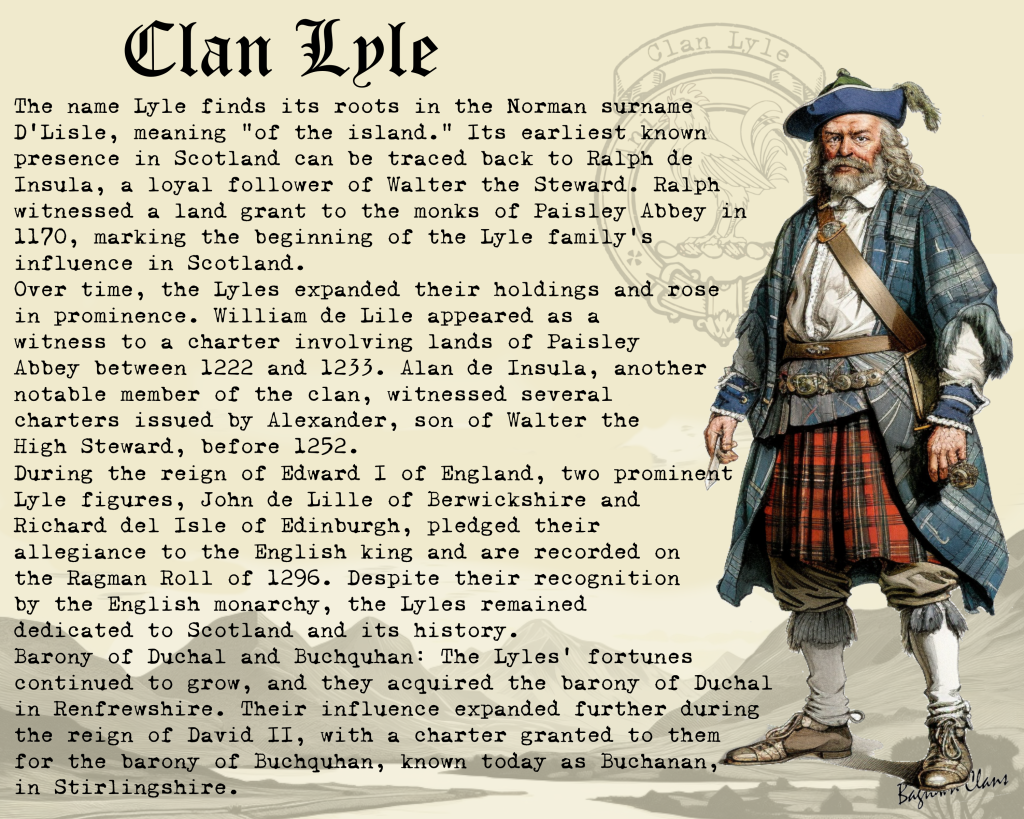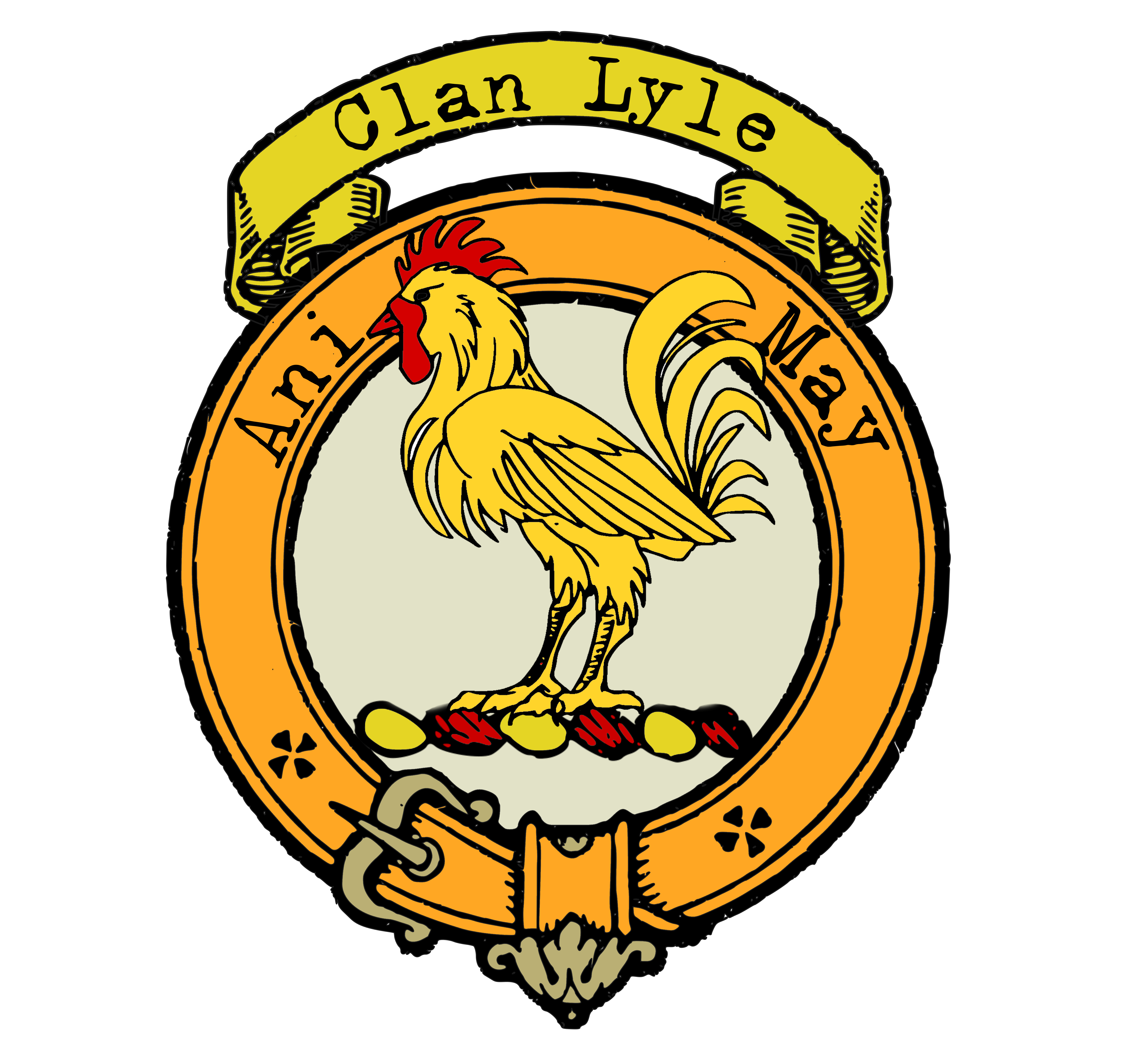Clan Lyle Crest
|
|
CREST: A cock Or, crested and barbed Gules MOTTO: An I May |
| The name Lyle finds its roots in the Norman surname D’Lisle, meaning “of the island.” Its earliest known presence in Scotland can be traced back to Ralph de Insula, a loyal follower of Walter the Steward. Ralph witnessed a land grant to the monks of Paisley Abbey in 1170, marking the beginning of the Lyle family’s influence in Scotland.
Over time, the Lyles expanded their holdings and rose in prominence. William de Lile appeared as a witness to a charter involving lands of Paisley Abbey between 1222 and 1233. Alan de Insula, another notable member of the clan, witnessed several charters issued by Alexander, son of Walter the High Steward, before 1252. During the reign of Edward I of England, two prominent Lyle figures, John de Lille of Berwickshire and Richard del Isle of Edinburgh, pledged their allegiance to the English king and are recorded on the Ragman Roll of 1296. Despite their recognition by the English monarchy, the Lyles remained dedicated to Scotland and its history. Barony of Duchal and Buchquhan: The Lyles’ fortunes continued to grow, and they acquired the barony of Duchal in Renfrewshire. Their influence expanded further during the reign of David II, with a charter granted to them for the barony of Buchquhan, known today as Buchanan, in Stirlingshire. The Lyles’ stature reached new heights when Sir Robert Lyle was elevated to the peerage as Lord Lyle by James II. This title conferred immense prestige upon the clan. The second Lord Lyle even served as an ambassador to England in 1472, showcasing their diplomatic prowess. The history of Clan Lyle is not without its share of intrigue. The second Lord Lyle was part of a group of noblemen who conspired against James III, culminating in the king’s murder at Sauchieburn in June 1488. However, Lord Lyle, reputedly horrified by the act, joined forces with the Earl of Lennox and other nobles to avenge the king’s death. Though initially forfeited, Lord Lyle regained his estates shortly thereafter. Another branch of the Lyle family emerged, displaying their valor on the battlefield. Notably, Hercules Lyle fought during the Jacobite Rising of 1745 and tragically fell at the Battle of Falkirk in 1746. This branch also acquired the lands of Gardiyne in Angus, maintaining their ancestral heritage well into the twentieth century. |
|
Citations:
|
|

Purchase @ Redbubble
Purchase @ Amazon.com
Purchase @ Amazon.co.uk

